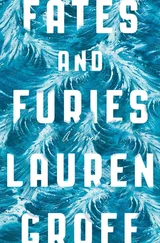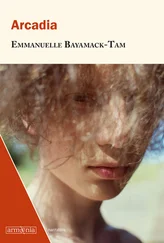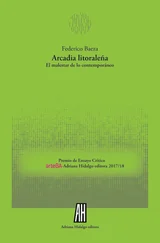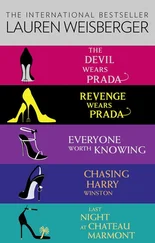Lauren Groff - Arcadia
Здесь есть возможность читать онлайн «Lauren Groff - Arcadia» весь текст электронной книги совершенно бесплатно (целиком полную версию без сокращений). В некоторых случаях можно слушать аудио, скачать через торрент в формате fb2 и присутствует краткое содержание. Год выпуска: 2012, Издательство: Hachette Books, Жанр: Современная проза, на английском языке. Описание произведения, (предисловие) а так же отзывы посетителей доступны на портале библиотеки ЛибКат.
- Название:Arcadia
- Автор:
- Издательство:Hachette Books
- Жанр:
- Год:2012
- ISBN:нет данных
- Рейтинг книги:3 / 5. Голосов: 1
-
Избранное:Добавить в избранное
- Отзывы:
-
Ваша оценка:
- 60
- 1
- 2
- 3
- 4
- 5
Arcadia: краткое содержание, описание и аннотация
Предлагаем к чтению аннотацию, описание, краткое содержание или предисловие (зависит от того, что написал сам автор книги «Arcadia»). Если вы не нашли необходимую информацию о книге — напишите в комментариях, мы постараемся отыскать её.
Arcadia — читать онлайн бесплатно полную книгу (весь текст) целиком
Ниже представлен текст книги, разбитый по страницам. Система сохранения места последней прочитанной страницы, позволяет с удобством читать онлайн бесплатно книгу «Arcadia», без необходимости каждый раз заново искать на чём Вы остановились. Поставьте закладку, и сможете в любой момент перейти на страницу, на которой закончили чтение.
Интервал:
Закладка:
Even the things he first found good soon made him feel hollow: Cheez Doodles, peanut butter, sodapop, Red Hots, which he ate until he was sick. The flickering sorts of lights they used in supermarkets and schools made even blinking feel like work. The streets were full of dogs, which he had always imagined to be good, peaceful creatures, but these dogs choked on leashes, left shit to rot on the concrete. Summer cooled into autumn, but beyond the softer light, a hint of cold, the season couldn’t come into its own. There were no golds, no blazes, no woodsmoke. The sidewalks only grew sadder until a dirty ice emerged. Worst were the people. There was no care in what they did. The pipes burst one day on the corner, the men in orange came, slapped a patch on the concrete, and within a week, the pipes burst again. People argued with themselves in public and wore their faces savage. Everyone was pale, puffy, unhealthy. At first, he marveled at the grossness, the fatness of everyone, and then one day it struck him that it was not normal to be as brown and scrawny as Arcadians were: it was not normal to see your friends’ ribs through their shirts, for men and women both to work bare-chested all day, equally topless, everything shining back at the sun. At night, the voices that came through the walls were canned, the many inflections of television, or the neighbors’ raised in anger. There were no soft songs, no lullabies. In the hall, he saw a mother hit her baby with a fist.
Even inside the apartment things were bleak: gray linoleum, Goodwill furniture. His parents moved about, faces in grief thick as paint. A silence grew between them and formed into a solid the consistency of wet sponge. Hannah stood at the window, her long hands cupped around her tea until it went cold. Her eyes sagged with winter. When she returned home from work, an administrative job at a social services clinic, silently, they had dinner. They were on the sixth floor, and there was no elevator and Abe could not descend to the street without Hannah and Bit to carry him, so all day he circled the apartment in his new wheelchair bought by welfare. Around and around he went, a thousand times. His wheels chewed tracks into the carpet.
What Bit hated most in all the Outside world, hated with an irrational, puking hatred, was the goldfish in the pet store a street away, its endless dull slide around the glass. When he passed the store on his way to school, he crossed the street. He was afraid of himself, of how badly he wanted to smash his fist through the window, to cradle the fish in his bloody hands and carry it down to the river. There he would dip it to the surface and free it into the terrible cold water. It might have been swallowed in a second, a sudden jagged mouth out of the black. But at least that second it would feel on its body a living sweetness, a water that it hadn’t dirtied with its own dying body.
His friends from Arcadia had scattered and he couldn’t track them down. He didn’t try for Outside friends. He did perfect work in school, so adults would leave him alone. Hannah and Abe wagged their lips at him, and he nodded and turned his back. He slept, later and longer, and when he wasn’t sleeping, he was locked in the bathroom. He had liberated a red lightbulb from a photography store and stolen cash from Hannah for the chemicals, and only in the half-light of his improvised darkroom, watching the world emerge on a piece of white paper, did he feel his old self stirring. He could control this world. He could create tiny windows he could fit between his hands and study until he began to understand them.
The spring of his first year out of Arcadia tumbled into summer. Without school, he didn’t get up at all. He refused to eat. He lost twenty pounds. When he stopped speaking, his parents, who had seen this before from him, took him for help.
The dreary corridors, the female doctor who held Bit’s hand, the gelatin and canned fruit, the rings of sad people talking their demons out of themselves and into the air, a kind of spiritual siphoning. A fog of time, Hannah crying at the window, clenched with guilt, once confessing to the doctor how she had given this sadness to Bit, it was all her fault. He watched, as if from far away. She visited every day, and clipped his fingernails, and combed his hair and told him stories, holding him on her lap as if he were a baby. Every morning he swallowed a pill, and slowly the chemicals settled into his system, built up there, a superconductor, pulling back the magnetic splinters of himself one by one. Eventually, they erected a barricade between his sadness and the world. He has swallowed the same pill every day since. He is afraid of what would happen if he didn’t, the chemistry ebbing in the dark of his brain. Even on the drugs, he has had some long bad slides. In graduate school, anxiety swallowed him whole and he didn’t come out of his apartment for a month; after the terrorist attacks on the city; a quiet slipping in the first few months after Helle left. He hasn’t yet dug himself out of this last one.
After his very first episode of sadness, Bit returned to school and kept going until he graduated and went smoothly into college. His sophomore year at Cornell, when he was visiting Jincy at Smith, he heard that Helle had returned from Norway. Jincy was somehow the knot at the center of the net, the one who searched people out and stayed in touch with them. And over the years after the first sighting, it was Jincy who told him that Helle was modeling, mostly local stuff, JCPenney catalogs and ads. Then she’d gone out to Los Angeles. Then she’d gone to San Francisco. Then she was in rehab. Cole had become Bit’s best friend again; they’d found each other at age twenty-four in a grocery store two blocks from where they both lived. Cole took over the narrative: Helle was married. The marriage was annulled. She was in Miami. Then, for a long time, nobody knew where she was.
Suddenly, Bit was thirty-five. Time, he often thinks, goes like that. He had grown tired of poverty, of scrambling for galleries’ attention, the few solo shows not fulfilling enough, anymore. He had gone back to school for his MFA, had gotten an assistant professor position in the university.
Then one drizzly day in spring, Cole called Bit up, saying that Helle was coming to town. She was going to stay with Sweetie, who had married wealth and had a cavernous apartment on the park. Sweetie had invited her sons for dinner, but Cole and Dyllie hated one another because Dyllie, after years of editorials, had been hired as a commentator on a far-right cable news show.
A young, handsome, bowtied black man with an irrational hatred for all things liberal and hippie, said Cole on the phone. He’s the neocon wet dream.
Dear God, said Bit, though all he was thinking was Helle, Helle, Helle, the girl with the vulnerable white face, the stud flashing in her nose.
Cole was laughing. He said, Sweetie always says, Lord knows, kiddos, that I named you the right way, Cole black and Dyllie white, but fate somehow dipped you in the wrong tie-dye. Of course, that makes Dylan scream Racist! which he does only when convenient. So what I’m saying is that you have to come to the dinner, if just to keep the peace between us. You’re so inoffensive.
Bit would have given his right arm to see Helle again, but he had a show opening that night. The Chemical Quatrain, the gallery called it. There was a woman who took huge closeups of the sexual organs of wildflowers; a man who trucked in double negatives and found the ghost of himself in the shadows of buildings; a woman who staged savage little scenes with naked children. Bit and his large-scale portraits.
No problem, said Cole. We’ll come to the show first, then all go to Sweetie’s after.
But Bit never made it to Sweetie’s that night. The brothers were bickering about parking, and Helle had given up; she’d opened the car door in traffic and run inside to get away from them. She shook the rain off her cropped hair, her earrings jangling. Even from afar Bit saw that life had ridden her hard. The sight of her drooping skin, her painted-on eyebrows, broke him. She was stringy and sad, but somehow turned heads as she walked, as she’d always done. He held his breath watching her. Then she saw him in the corner with the wine, and her false smile fell, and she walked very fast right to him. She collapsed onto his shoulder, her skin’s deep smell still the same under all the orange and clove of her perfume, her body in his arms the same, his own body’s movement toward hers the same. There in the chic gloss of the gallery, the years peeled off of him and all the old stories hummed, taut, between them, electric lines.
Читать дальшеИнтервал:
Закладка:
Похожие книги на «Arcadia»
Представляем Вашему вниманию похожие книги на «Arcadia» списком для выбора. Мы отобрали схожую по названию и смыслу литературу в надежде предоставить читателям больше вариантов отыскать новые, интересные, ещё непрочитанные произведения.
Обсуждение, отзывы о книге «Arcadia» и просто собственные мнения читателей. Оставьте ваши комментарии, напишите, что Вы думаете о произведении, его смысле или главных героях. Укажите что конкретно понравилось, а что нет, и почему Вы так считаете.
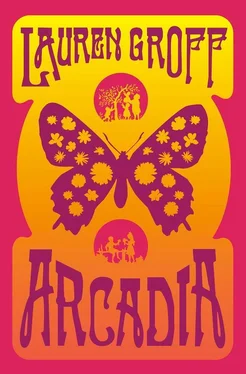
![Andrea Höst - In Arcadia [Touchstone - Extras]](/books/56405/andrea-host-in-arcadia-touchstone-extras-thumb.webp)

